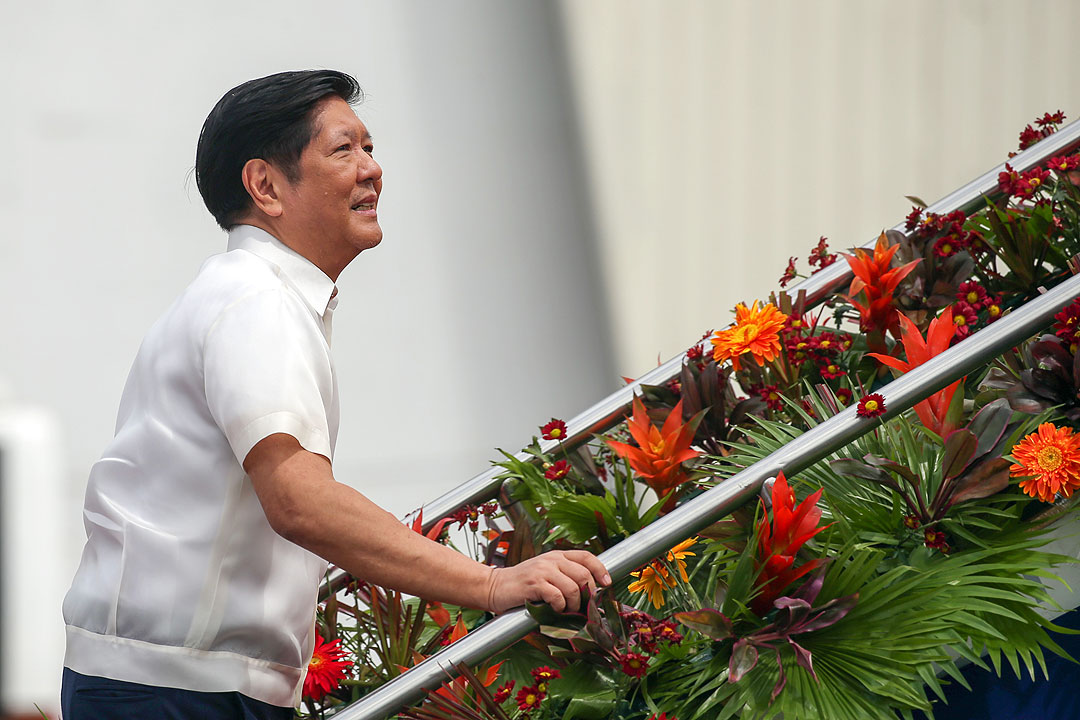Marcos in Brunei; deals on tourism, maritime and food security signed

THE PHILIPPINES and Brunei have signed deals aimed at bolstering cooperation in the areas of tourism, maritime, and food security, the Palace reported Tuesday, as President Ferdinand R. Marcos, Jr. began his two-day state visit in the neighboring Southeast Asian nation.
Mr. Marcos arrived in Brunei Darussalam before noon and later met with Sultan Haji Hassanal Bolkiah Mu’izzaddin Waddaulah Yang Di-Pertuan.
The two leaders immediately sealed the economic partnerships ahead of Mr. Marcos’ scheduled departure for a two-day working visit in Singapore, where defense leaders from dozens of nations are gathering.
In a press release, his office said the Philippines and Brunei signed a memorandum of understanding (MoU) on maritime cooperation to boost information sharing, skills training, and research.
The two countries also signed a letter of intent “to explore further cooperation and collaboration on the field of agriculture for food security and sustainable agriculture.”
They also signed an MoU to “generate cooperative tourism projects and increase tourist arrivals between the two countries.”
The tourism deal seeks to boost ties in Islamic tourism and the promotion of Muslim friendly destinations.
The two countries also signed an MoU to allow mutual recognition of national certificates.
Mr. Marcos is set to fly to Singapore on May 30 to deliver a keynote address at the 21st Edition of the IISS Shangri-La Dialogue, Asia’s premier defense summit.
In his departure speech, he said he would articulate the Philippines’ “perspectives and outlook on defense and diplomacy” and highlight his country’s “commitment to a rules-based international order and constructive multilateralism” amid geopolitical challenges.
Before leaving Manila, Mr. Marcos’ government had to deal with China’s unilateral fishing ban in the South China Sea, which Beijing claims almost in its entirety including waters that are well within the Philippines’ exclusive economic zone.
Early in May, Beijing approved a policy allowing its coast guard to detain foreigners it suspects of violating its exit-entry rules “in the waters under the jurisdiction of China” for up to 30 days — and in some cases for as long as 60 days — without a trial.
Raymond M. Powell, a fellow at the Gordian Knot Center for National Security Innovation at US-based Stanford University, said in an X message: Mr. Marcos should raise concerns over the new China regulation, which will take effect next month, at the security dialogue.
“My visit to Singapore is part of the series of high-level exchanges between the Philippines and Singapore which began at the start of the year,” Mr. Marcos said, noting the need to renew ties with Singapore after Lawrence Wong was sworn in on May 15 as its new prime minister.
Mr. Marcos said he will invite Singapore’s president and its new prime minister to visit the Philippines “as a testament to our strengthening bonds.” — Kyle Aristophere T. Atienza



